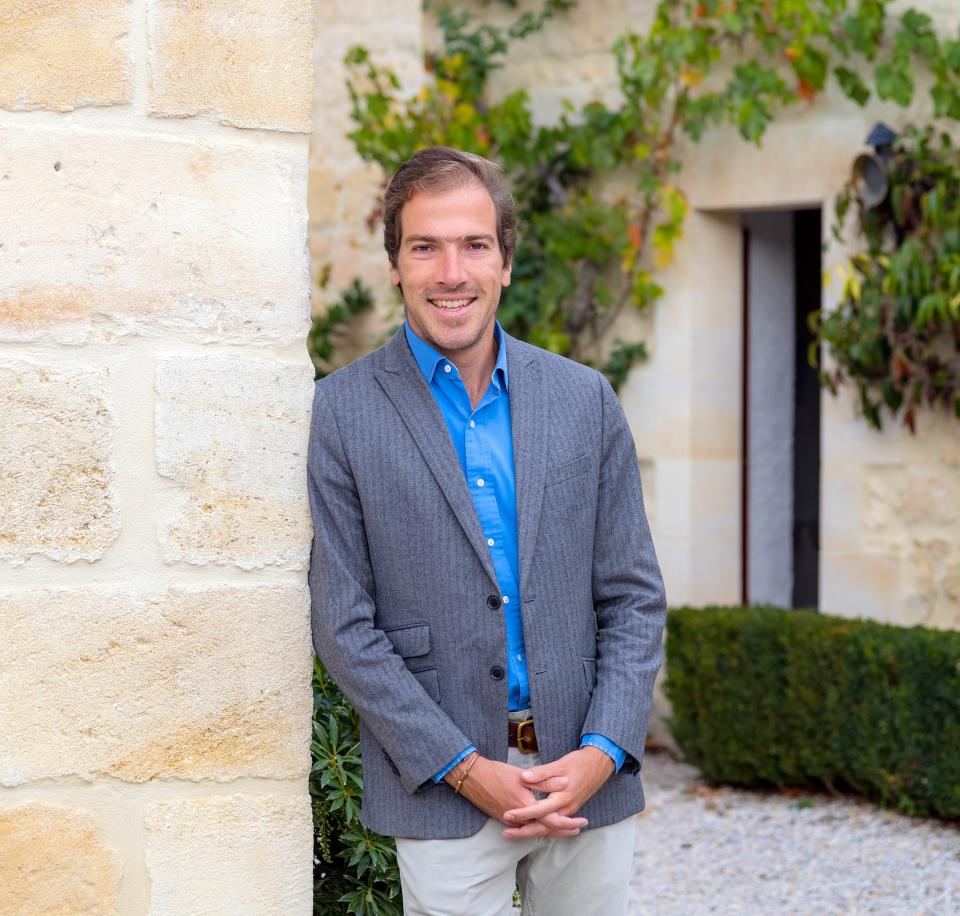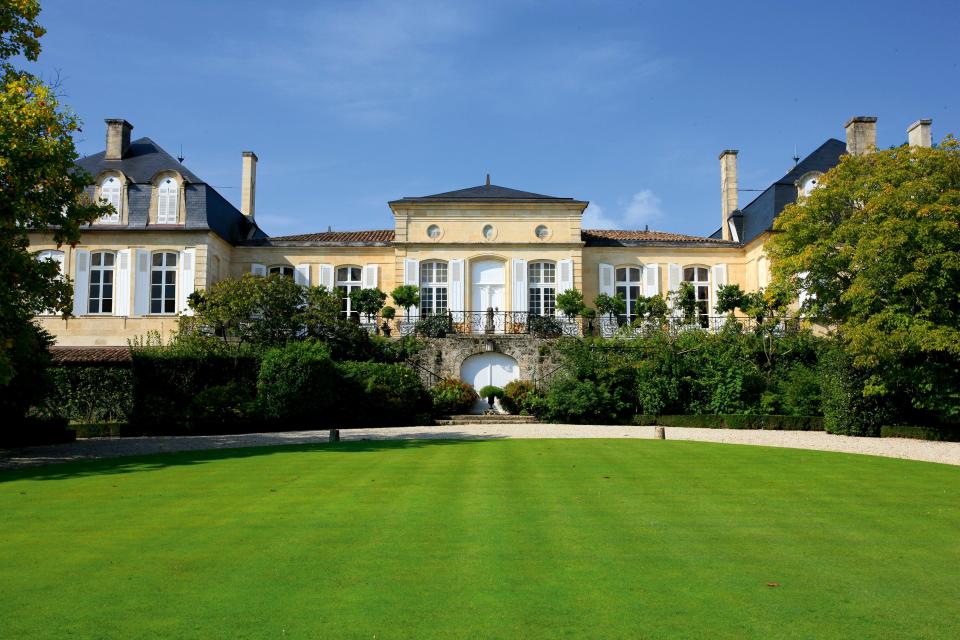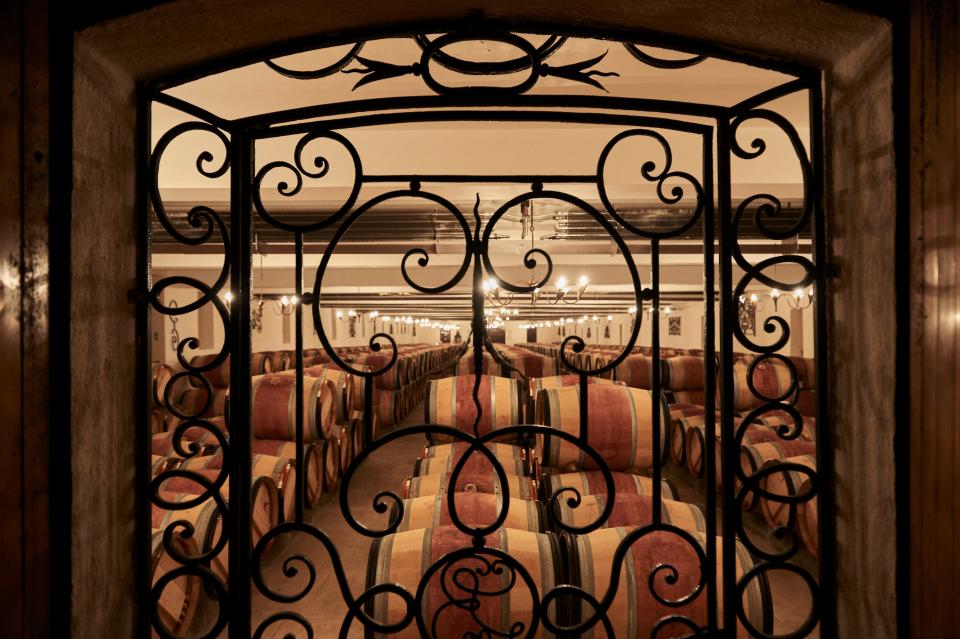From France to Nashville: Bordeaux vintner explores ways to reduce waste in wine-making
The words "fine wine" evoke thoughts of romance, refinement and elegance, but a 10th generation vintner is embracing a new vernacular in the world of fine wines. Words like energy, sustainability, carbon footprint, Chanel (as in Coco) and keg.

Damien Barton Sartorius, director of Château Langoa and Léoville Barton, is every ounce as elegant as his wines.
Barton Sartorius loves talking about wine, and he often weaves it into his conversations, expanding on how the wine industry can help reduce the carbon footprint and how it can help with environmental care. The Barton family has long practiced sustainability in their vineyards.
“Otherwise, the vineyards would not survive for future generations,” Barton Sartorius said.
The Barton dynasty dates back to 1725 when Thomas Barton traveled from Ballyshannon, Ireland, via a brief time in the Mediterranean, to Bordeaux, France, where he started exporting wines to Ireland and Holland. His family has sustained ownership of their Bordeaux estate continuously since the 1855 Classification, which is something only two other families in Bordeaux can boast.

In addition to his duties at Barton Family Wines in Bordeaux, Barton Sartorius is, at the moment, working on two ways to help reduce energy consumption and increase sustainability. One of them is embracing wine-on-tap.
The wine is shipped in barrels rather than individual bottles. It has long been known that wine is aged in oak barrels that help provide aroma, specific taste and color, but these newer barrels are designed specifically for shipping and no character of the wine is lost.
For Barton Sartorius' own wine sales and distribution company brand, 225 label, the wine is shipped in barrels or in “box and bag” containers of up to 1,000 liters. His brand name 225 is a nod to the past when wines of Bordeaux were transported to England in 225-liter barrels and then distributed throughout the country. Fifty percent of the carbon footprint of a bottle of wine comes from the glass container and the transporting of the wine, so this old way of shipping is becoming new again.
Nashville, in partnership with New York's Gotham Project, will soon be a part of this new program through Sixty Vines downtown, Barton Sartorius said. The Gotham Project is working to eliminate the use of 3,000 bottles, closures/foils and labels.
Barton Sartorius has also implemented a return bottle program as another way to help reduce the carbon footprint by 95% compared to a single use.
After the wine is consumed, a reusable bottle is returned, cleaned and refilled up to 30 times.
“Recycling doesn’t go far enough. It uses too much energy, while participating in waste reduction is taking more responsibility,” Barton Sartorius said.
“Regarding organic, even organic viticulturists spray their vines. In order to be considered organic, the spray simply has to be natural in origin. But, too much of anything can lead to unsafe results. Our vineyards use copper and sulfur very sparingly to help control diseases. Of course a lot of hard work goes into any farming operation to prepare the land and help limit disease so spraying is not necessary at all. However, there is no label with this certification listed, as it is with organic.”
A portion of Langoa is farmed organically, and Barton Sartorius' sister Mélanie, is very involved in obtaining the various levels of the French government’s HVE environmental certification. He said that the Barton estates maintain extensive greenbelts, even though they could be using it to plant vines.
“The only forest in St. Julien is ours, and it’s AOC St. Julien,” he said.
Barton Sartorius said sustainability and the reduction of energy can be seen in many ways in the new world of centuries-old wine making, and he is making his mark, noting the importance of a larger ecosystem leads to healthy soils and vines that create healthy grapes.

He is so well-known for his philosophy of sustainability and healthy, green sensibilities that the House of Chanel took notice and came calling to learn what it could do better about reducing its own carbon footprint.
The legendary French brand, established by its namesake Coco Chanel, is not just about haute couture and fragrance. For almost 30 years, it has been producing French wines and owns two vineyards in Bordeaux: Château Rauzan-Ségla and Château Canon.
Haute in French is associated with adjectives such as expensive, high quality, elegant, handwork and hard work. Those adjectives are also associated with fine French wines, just as they are with clothing.
Barton Sartorius recently visited Nashville to take part in the longest-running charity wine auction in America, the 44th annual l’Eté du Vin.
As part of the many events surrounding the wine auction, he conducted a wine tasting featuring his family’s wines at the Four Seasons Hotel with David Morgan serving as moderator.
“We are very privileged to have Damien visiting with us in Nashville," Morgan said. "My wife, Janice, and I have visited Damien and his family at the Barton Estates several times and it was nice to have him as our honored guest for the l’Eté du Vin and especially for a wine tasting.”
Morgan, who is considered a foremost authority on wines of Bordeaux, first learned about different wines and regions through wine tastings in the 1980's, when former Tennessean writer, Joan Dew, hosted a series of wine tastings. It was at those tastings that Morgan learned his personal palate preferred the wines of Bordeaux, France.
“Wine tastings are an excellent place to start for anyone interested in learning about wines,” Morgan said.
While keeping his eye on the carbon footprint and sustainability, ultimately the romantic in Barton Sartorius says, “Wine brings people together to share culture and community, love of travel, food and wine. Wine is something that should be shared with someone.”
And while doing so, Barton Sartorius is sharing his passion for helping make the world a bit greener.
This article originally appeared on Nashville Tennessean: In Nashville, Bordeaux vintner talks waste reduction in wine-making

